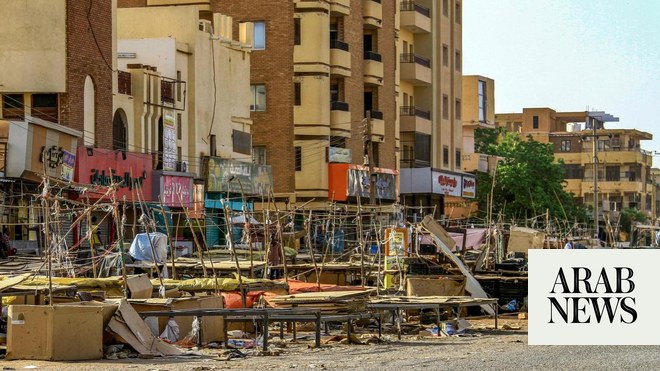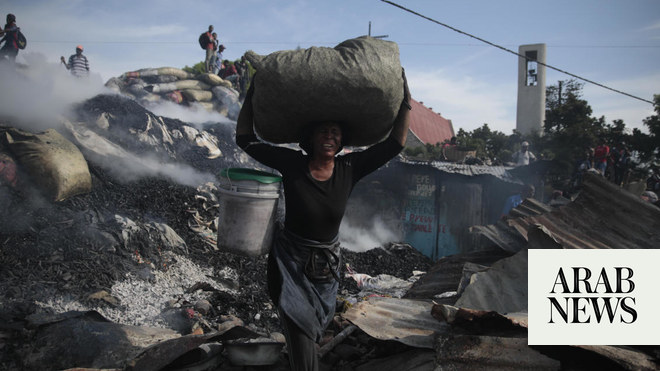
Eastern Libyan forces launched an offensive on Tripoli more than two weeks ago
Haftar says his forces are fighting to clear the country of “terrorist” elements
BENGHAZI, Tripoli: The UN health agency says at least 15 more people died in fighting over control of Libya’s capital in the past two days, bringing the total to 220 dead including civilians.
The World Health Organization said late Friday that 1,066 others have been wounded since the self-styled Libyan National Army (LNA) launched an offensive on April 5 to take Tripoli.
The fighting pits the LNA, led by Khalifa Haftar, against rival militias affiliated with a weak UN-supported Government of National Accord (GNA) government in the capital.
US support
President Donald Trump phoned Haftar earlier this week, expressing US support for the leader’s perceived stance against terrorism.
The White House revealed late Friday that Trump reached out personally to Haftar, as a push at the UN to broker a cease-fire hit trouble.
Observers see Trump’s words of praise for the eastern commander, at the expense of GNA leader Fayez Al-Serraj, as evidence of US support that explains Haftar’s determination to pursue his offensive to seize Tripoli. Trump and Haftar spoke on Monday “to discuss ongoing counterterrorism efforts and the need to achieve peace and stability in Libya,” according to the White House.
A statement said that Trump “recognized Field Marshal Haftar’s significant role in fighting terrorism and securing Libya’s oil resources,” adding that “the two discussed a shared vision for Libya’s transition to a stable, democratic political system.”
Haftar, seen by his allies Egypt and the UAE as a bulwark against militants, has declared he wants to seize the capital, now controlled by a UN-recognized government and an array of militias.
On Thursday, Russia and the US opposed a British bid backed by France and Germany at the UN Security Council to demand a cease-fire in Libya.
The military commander backs a rival administration based in eastern Libya that is refusing to recognize the Tripoli government’s authority.
Russia insisted on having no criticism of Haftar in the proposed resolution, while the US said it wanted more time to consider the situation.
Diplomats say the signaling from Washington goes a long way toward explaining Haftar’s aggressive strategy in the face of strong condemnation by the European powers and the UN.
“Haftar believes he has to fight until the end,” said one diplomat at the UN speaking on the condition of anonymity.
Despite some military setbacks, Haftar maintains that he “can prevail,” according to several News of Trump’s phone call “clarifies” the US position, noted another diplomat, after Britain fought in vain for five days to try to pass a resolution calling for a cease-fire and unconditional humanitarian access to the combat zones.
In terms of international backing, Haftar enjoys the support of Egypt, Saudi Arabia, the UAE, Russia and — now, clearly — the US.
Al-Serraj, whose control over his country remains extremely tenuous, is backed by Qatar and Turkey.
Haftar would not have unleashed his offensive without a green light from his backers, and getting him to back down from the “impasse” will depend on their will, the diplomats said.
Whatever the outcome of the British resolution, the evolution of the diplomatic game around Libya has undercut the UN’s authority.
The launch of the offensive coincided with UN Secretary-General Antonio Guterres’s visit to Libya to push for a national reconciliation conference.
That conference was hastily canceled by the UN’s representative to Libya Ghassan Salame, who just this week described Haftar’s military operation as a “coup d’etat.” Both his credibility and that of the UN are on the line if Haftar wins power.others.












